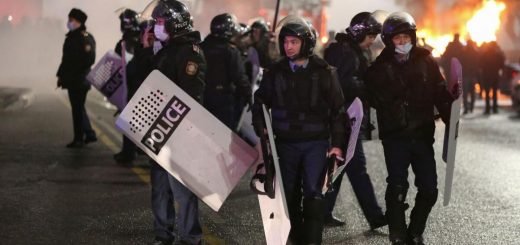Russia invades Ukraine: What does the International law say?
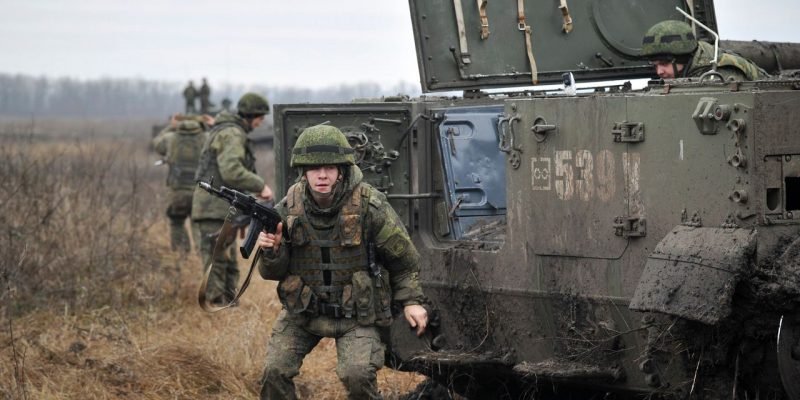
After recognising the separatist regions of Donetsk and Luhansk and sending the peacekeeping forces to those regions for the protection of Russian ethnic minorities. The Russian president has now officially announced the beginning of military operation in Ukraine and confirmed neutralising air bases and military infrastructure. Ukraine has also responded by attacking five Russian planes and a helicopter and Ukrainian President Volodymyr Zelensky has declared martial law in the country.1
Apart from the geopolitical ramifications of the development, one more aspect needs to be discussed about the events unfolding in Ukraine and that is “The International Law”, what does it say in such situations? Is there any International law at all? Is it enforceable, if yes then by what means? Does it hold Russia accountable for its actions?
What is the International Law?
The term International law became common only in the 19th century, the concept can be traced back to Ancient Rome, the institutionalisation of International law is found in 16th – 17th century Europe when several treaties were signed against the backdrop of emerging nation-states. These treaties were, The Peace of Augsburg 1555, The Treaty of Westphalia, 1648, The Treaty of Utrecht, 1713, which lead to the idea of state sovereignty and linking this sovereign authority to a fixed territorial boundary.2
What is sovereignty, that forms the basis of the nation-state system? Sovereignty is a political concept that refers to dominant power or supreme authority. In a monarchy, supreme power resides in the “sovereign”, or king. In modern democracies, sovereign power rests with the people and is exercised through representative bodies such as Congress or Parliament. The Sovereign is the one who exercises power without limitation. Sovereignty is essentially the power to make laws, even as Blackstone defined it. 3
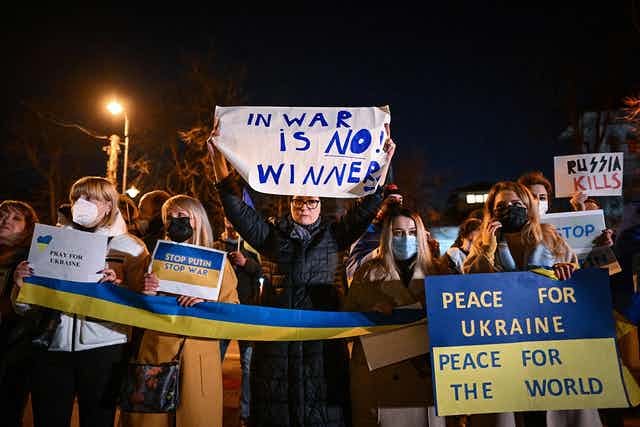
When is the International law violated?
A country is said to have violated international law when it violates the treaties to which it is a signatory or when it breaks the internationally accepted customs and regulations. The breach of an international obligation is referred to as an internationally wrongful act. Thus, a country committing an internationally wrongful act is liable and can be punished. The customary international law is binding on all states and the International Law Commission’s Article on State Responsibility4 provides the regulations regarding the violations of the customary law and the consequences thereof. An act of any state organ is also considered an act of the state under international law.
A state violates international law when it breaches the obligations that are binding upon it at the time such violation occurs.
A state is also liable for violating international law when it aids or assists another state in committing an internationally wrongful act with knowledge of the circumstances.
When a state directs or coerces or controls another state in doing an internationally wrongful act, with full knowledge of the circumstances, it is held liable for the violation of international law.
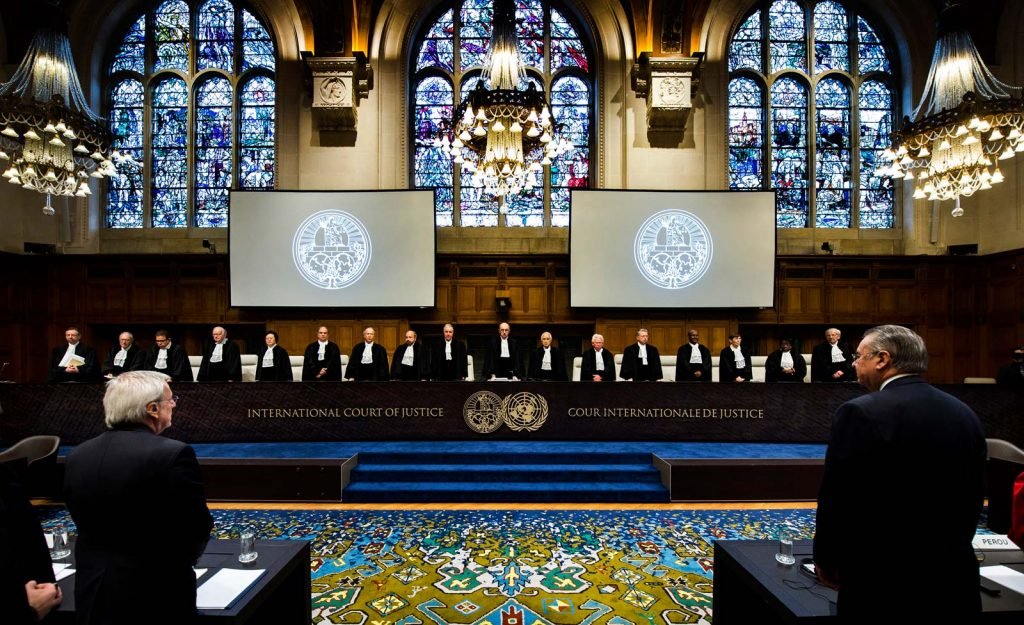
Exceptions
There are the following exceptions to the liability of a state violating international law:
Consent
An act is not held as a wrongful act if it is committed by one state over another state with the consent of the latter. In such a case the act committed by the former state must be limited to the consent given by the latter state. Thus, a state is empowered to allow another state to use its waters or air space, and such use, if allowed, would not be constituted as an invasion.
Self-defence
The acts committed by a state to defend itself against another state or organisation do not count as violations of international law provided that such acts conform with the United Nations Charter (Article 15).
Countermeasures in respect of an internationally wrongful act
If the acts of a state violate the obligations by which such state is bound towards another state but are committed as countermeasures taken against such state, then these acts will not be constituted as a violation of international law.
Force majeure
Force majeure refers to an unforeseeable event because of the irresistible force which is beyond the control of the states. In case of force majeure conditions that render it impossible for a state to fulfil its obligations towards another state, such acts, which the state commits or is unable to commit to fulfilling the obligation by which it is bound, are not considered a violation of international law.5
By attacking Ukraine, Russia has violated the sovereignty of Ukraine which is one of the members of the United Nations and no exception clauses apply to such a move. Ukraine had neither consented to such involvement, nor it can be called an act of self-defence, as NATO forces had not even entered Ukraine.
Who has the authority to enforce International law?
Since all the UN member states are sovereign and no member state or organisation can impinge upon the sovereignty of the other, thus it becomes the mandate of the United Nations Security Council to intervene in such cases. In the past, UNSC has sanctioned intervention in states like Libya and Syria on the grounds of violation of the Human rights of the people by the state itself. The military intervention was led by US and NATO forces, this time the situation is even more serious as two states are at war now, a situation we may not have observed since World war II. Why have UNSC has not intervened so far? The obvious reason is that Russia, unlike Syria or Libya is a military superpower and a nuclear-armed state, any direct military confrontation may lead to full-fledged war and Russia has already warned the west about the consequences. The situation testifies to the Sophist idea that “Justice is the interest of the strong”. Secondly, even if UNSC approves military intervention, we must know that the UN doesn’t have an army of its own, since the army is the hallmark of sovereignty and in the UN system only states are sovereign, it will have to depend on NATO forces only, interestingly Russia is a permanent member of UNSC and thus enjoys the veto power, it can single-handedly veto any such proposal. Thus any intervention will have to be voluntarily led by the western states on their own, even for that Parliamentary approval by respective Parliaments is required, Therefore, no immediate military assistance may be on the way for Ukraine, though the European states have been supplying military hardware to it as military assistance.
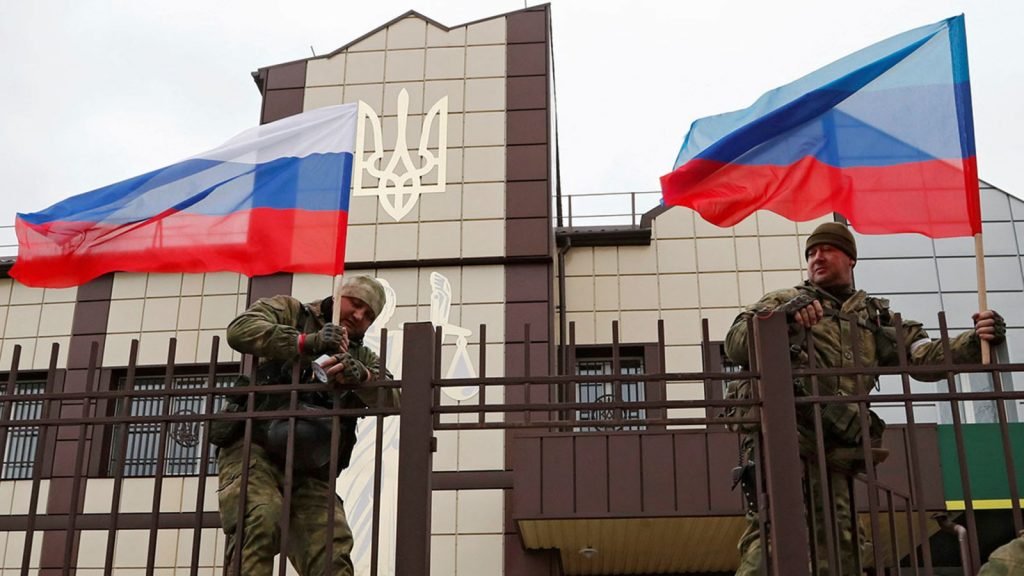
In case Russian forces, commit human rights violations, such an allegation may be taken to the International Criminal Court, but again the enforcement of its ruling meets the same fate. In the current situation, there seems to be no International law for Ukraine, validating the Realist assumption that International law is just a set of moral values which states follow only when its in their interest and to seek reciprocity from other states, when it doesn’t serve any purpose, they disobey it. Since there is no central authority, international law cannot be enforced.
Implications
With NATO denying to make any military intervention, the fragility of international law has been exposed, the idea of the UN being the peacekeeper of global peace has suffered a major blow. Expansionism has got legitimacy, Taiwan may become the next target, the liberal world order is again facing the crisis from authoritarian states, China-Russia nexus is calling for a restructuring of the global order led by the US, what we may observe is a cold war 2.0, if the Russian and Chinese expansionism goes unchecked.
‘Whenever law ends, tyranny begins.’ JOHN LOCKE, Second Treatise on Government (1690), this is what we are witnessing with Russian armed intervention.




